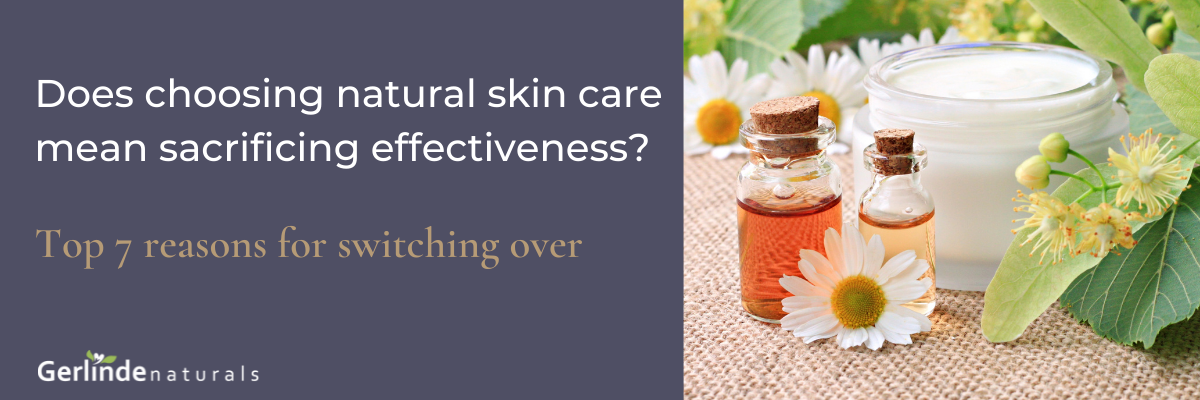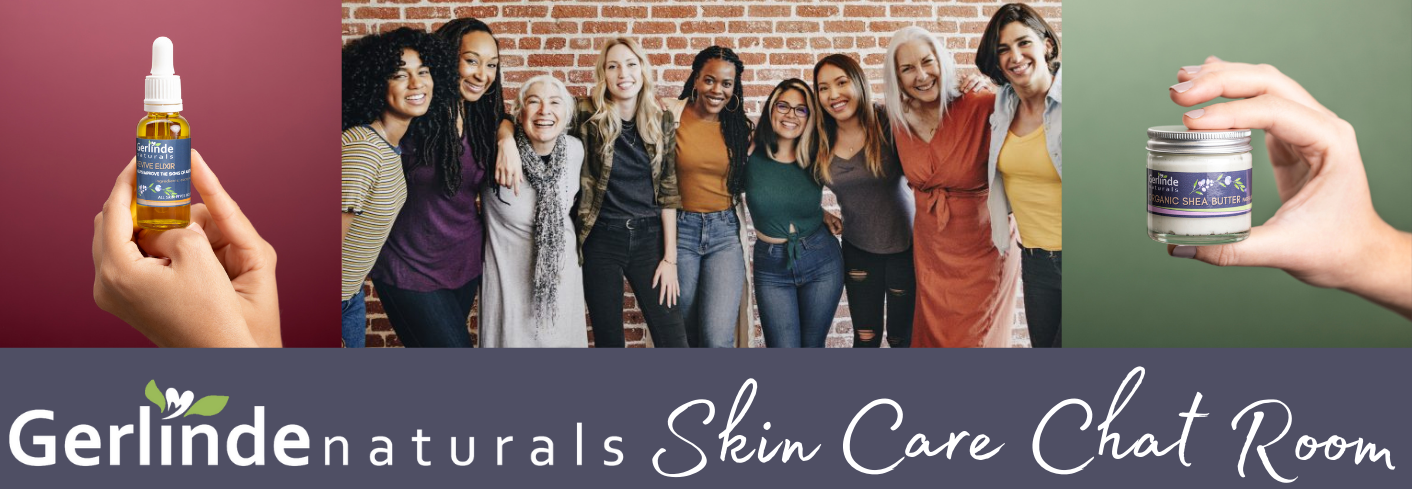Does choosing natural skin care mean sacrificing effectiveness?

- - prioritising locally made goods from small businesses
- - the transparency that natural beauty brands provide
- - the commitment to the environment, aligning choices with nature
- - being able to actually pronounce the ingredients (jojoba oil, argan oil, etc.)
- - avoiding potentially harmful ingredients, mineral oils, phthalates, fragrance, drying alcohols
- - not tested on animals
- - or simply because it is a more sustainable option
Unfortunately the “natural” label itself is not regulated across the industry, which means that each company can choose what “natural” means for themselves. There could be as little as 1% of natural ingredients in a product, to label itself “natural”. That’s why it is important to read and learn to decipher product ingredient lists.
Harmful substances in skin care products
There are a variety of potentially harmful elements found in many skin care products, such as toxic pesticides and preservatives, potentially harmful chemicals, products that are bad for the environment. The natural skin care movement aims to avoid any potentially harmful ingredients in products applied to the skin.
The problem is, there isn’t definitive research indicating that all synthetic ingredients are harmful. Furthermore, products branded “natural” as a marketing tactic aren’t regulated and can contain the exact same synthetic ingredients as any other product.
In my own UK based business and natural product range, I use 99% natural ingredients, easily identifiable in the ingredient list. The 1% non-natural component is usually the preservative which is absolutely necessary to make the use of a water containing product microbiologically safe and keep for a longer period of time.
Strict Natural Cosmetic Regulations
Sensitive, dry, compromised skin responds to gentle, natural oils - it is instantaneous nourishment, and skin really glows once it's been properly fed. I love all natural oils - balancing jojoba, nurturing rosehip, healing calendula and rejuvenating pomegranate seed oil - which is wonderfully high in antioxidants too.
Most importantly, find out what works for your skin, be your skin's best advocate. Every shift and sign that your skin shares with you - from red cheeks to jawline blemishes - is valuable information - pointing to what's going on within & beneath.
If you do switch to natural products, keep the following in mind
- The label on the back of the bottle is much more important than the label on the front. Any product can claim to be “all natural” but the ingredient list doesn’t lie. If you don’t know what an ingredient is, look it up. There are even apps to help you determine which products are most natural and organic.
In the UK and USA product labels have to be listed from highest to lowest concentration, but the lowest concentration does not always mean that you don’t get the benefits. An extract for example could not be added at higher concentrations because it could a) be skin irritating b) interfere with other ingredients or c) be completely without any advantage. - What you put in your body is just as important as what you put on it. A clean, nutritious diet of whole foods is essential for healthy skin. Many “superfoods” can help nourish your skin, keeping it clear and young from the inside out.
- Instead of getting swept up in marketing claims, the most important thing is that you choose products to suit your skin and secondly, to keep your skincare simple. Using fewer products in your daily skincare routine reduces your exposure to excessive ingredients.
- Choosing simpler products with fewer ingredients is another good option, especially for people with easily irritated skin.
Please join me over at my new Facebook Skin Care Chatroom
